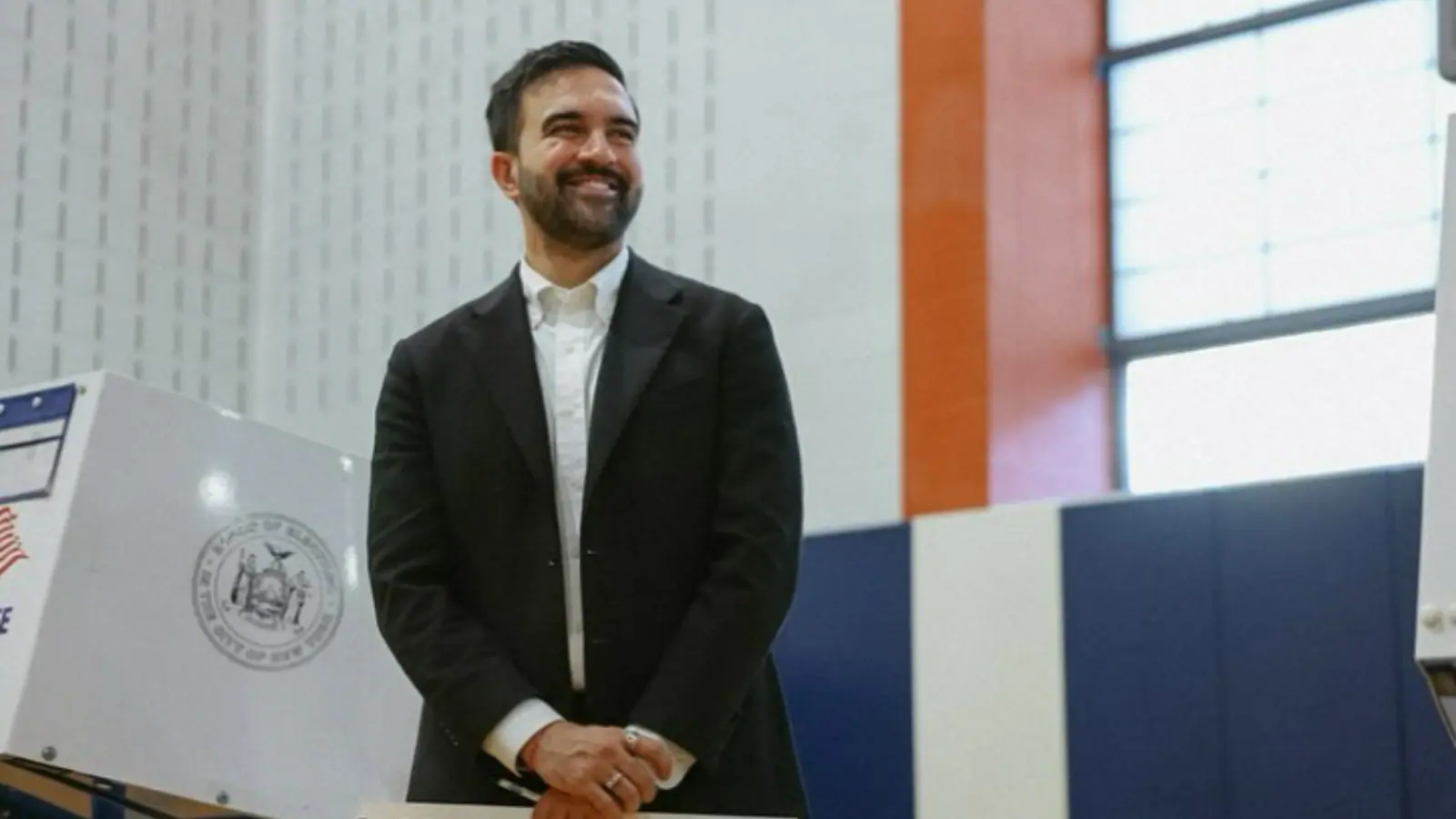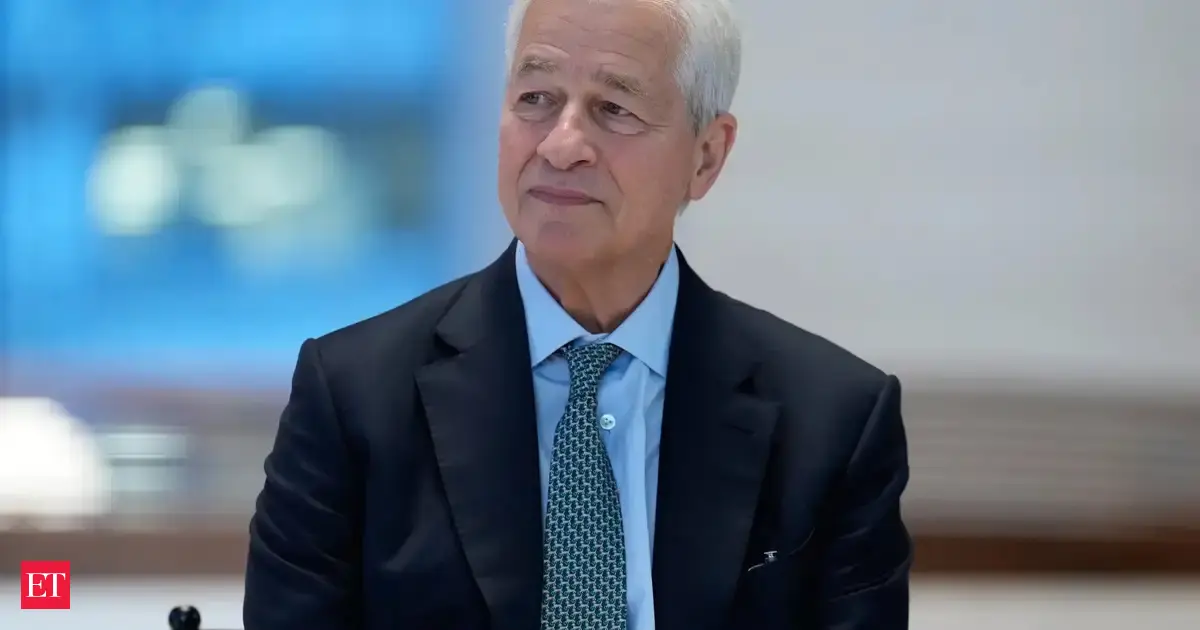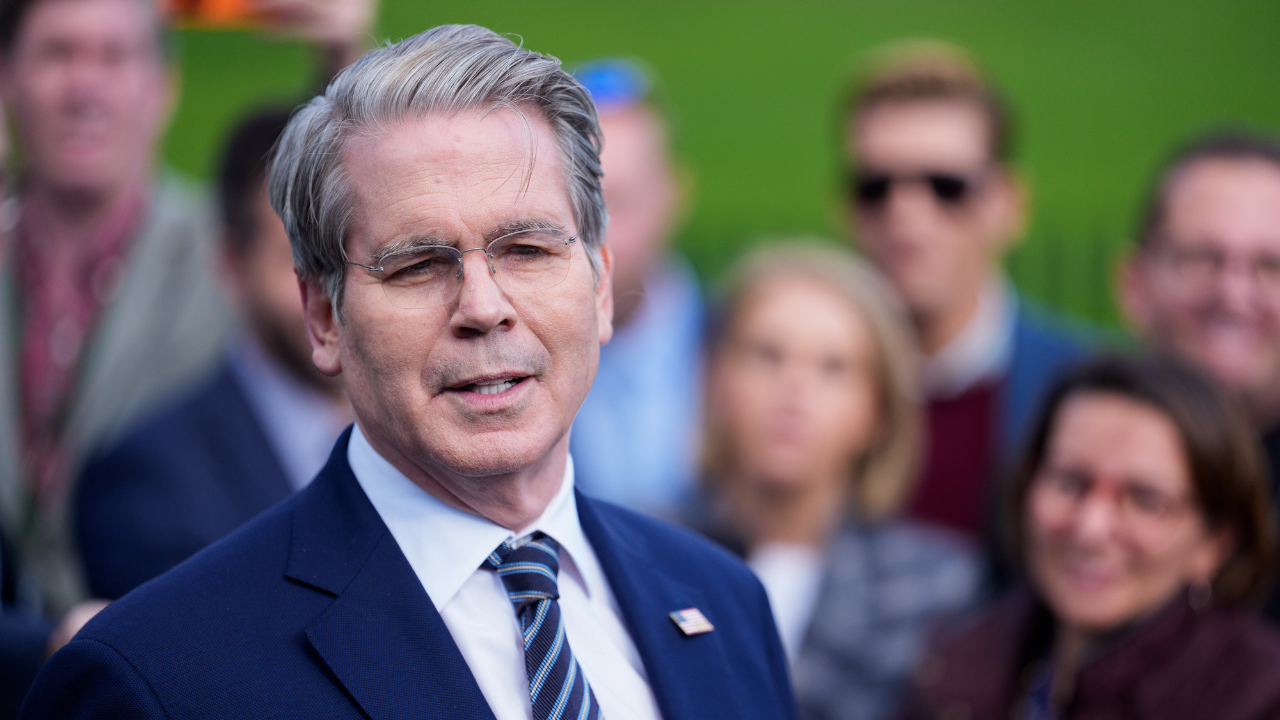Copyright news18

The chant rose through Brooklyn’s Paramount Ballroom, a beat of hope, a pulse of change. And then, as lights dimmed and music swelled, the rhythm of Hindi cinema’s ‘Dhoom’ propelled his entrance — the young, formidable Zohran Mamdani, stepping onto the stage as though a new act in the city’s story. He opened by invoking Jawaharlal Nehru’s historic vow of self-determination – “Long years ago, we made a tryst with destiny”— and then directly addressed how the axis of power is shifting. And for one electrifying moment he dared his chief antagonist, “Donald Trump, since I know you’re watching: turn the volume up.” That line punctuated a campaign and now signifies a new political chapter in America’s greatest city. A VICTORY ROOTED IN THE UNDERDOG STORY Mamdani entered the field as a relative long-shot. But in June’s Democratic primary for New York City mayor, he stunned the political world by defeating former three-term governor Andrew Cuomo — an upset that analysts called a “political earthquake.” His surge was built on a coalition of immigrants, young volunteers, door-knockers, culture-minded canvassers, and city workers fed up with cost spikes and stagnation. When he then went on to win the November general election — becoming New York’s first Muslim and South-Asian mayor — and did so with strong turnout and a clear mandate, the story was complete. His campaign crystallised around one central pitch: “We cannot afford the city we have been living in anymore.” THE INDIA ANGLE: ROOTS, RHETORIC, REACH But there is another layer to Mamdani’s story: his South Asian ancestry, his family’s journey, and the controversies that followed. His father hails from Gujarat and his remarks about the 2002 Gujarat riots — he publicly described the event as a “mass slaughter of Muslims” and called India’s Prime Minister Narendra Modi a “war criminal” for his role as Gujarat chief minister at that time. Mamdani faced intense backlash over his remarks from prominent public figures and politicians across party lines in India and diaspora voices. Mamdani’s assertion that Modi “wiped out” Gujarati Muslims was widely condemned as provocative and factually baseless. Gujarat’s 2021 census data shows Muslims make up roughly 10 per cent of the state’s population, numbering over six million. Indian-origin users and diaspora commentators on social media often accuse him of pushing extremist narratives under the guise of progressive politics. Apart from his remarks, his presence at events where anti-Hindu speeches were given also led to accusations that his outrage was selective. Mamdani also stated that when he tells people, “I am a Gujarati Muslim, it is a shock to them,” underscoring the dual heritage that he carries. That connection — between a deep-South Asian heritage and the ascent to one of America’s major city thrones — is compelling. But it’s also provoking strong reactions in the Indian diaspora. Some Indian-American community leaders accuse him of importing South Asian religious and communal conflicts into New York politics; others applaud the boldness of his voice. In India, right-wing commentators bristle: for them, Mamdani’s rise is less a story of American immigrant success and more a critique or even an indictment of current Indian politics. THE TRUMP SHOWDOWN From the start, the race carried national stakes. President Donald Trump repeatedly labelled Mamdani a “100% Communist lunatic”, mocked his youth and background, and warned that a victory would invite federal consequences for New York. In the early hours of his victory night, Mamdani deliberately drew the connection: “Four words for you… turn the volume up.” Then Trump responded on his own platform: “…AND SO IT BEGINS!” Later the same day, Trump posted on Truth Social: “Trump Wasn’t On The Ballot, And Shutdown, Were The Two Reasons That Republicans Lost Elections Tonight.” The message was implicit: New York may have just voted, but the reverberations transcend the city — and he intends to watch closely. REACTIONS: JUBILATION, CAUTION, BACKLASH Supporters celebrated not merely a candidate’s victory, but a symbolic one. For many, Mamdani is a milestone: an immigrant-minority Mayor in a city built by immigrants; a young voice that said loudly the cost-of-living crisis cannot wait. Former President Barack Obama even phoned him before the election, offering to serve as a “sounding board” if victorious — a nod to the national significance of his ascent. Business leaders, real-estate interests, and moderates worried that tax hikes, expansive spending promises (rent freezes, free buses, universal childcare) could strain the city’s economy. Some major donors and centrist Democratic strategists fretted over whether this would narrow a coalition in 2026-28. Some Jewish and Hindu community groups voiced concerns about Mamdani’s earlier statements and activism around Israel/Palestine, wondering how he will govern a city of myriad faiths and identities. The response from Trump-aligned social media and MAGA corners included Islamophobic, xenophobic undertones — calls to “deport him to India,” online meltdown at the notion of a “communist mayor” of New York. That backlash underscores how this is about much more than local politics; it’s about national culture wars. WHAT THIS WIN MEANS For New York City: A new kind of leadership enters City Hall — young, immigrant-rooted, ideologically bold. The challenge ahead is enormous: delivering on affordability, housing, transit, while managing a multi-billion-dollar budget and dealing with the State Legislature in Albany. His win gives him political capital, but the institutional resistance is real. For the Democratic Party: This is a clarion moment for progressives; the victory speaks to generational change, to issatisfaction with traditional machines, to the potency of grassroots organising. It also raises questions: Can this brand of politics scale? Will it appeal beyond the coastal cities? How will moderate Democrats adapt? For the broader U.S. political ecosystem: Here is New York achieving something that once seemed improbable: a viable progressive mayoral victory in the nation’s largest city — at a time when Republicans are rallying hard. The Trump-era tension remains alive: the contrast of cosmopolitan, global-city governance vs. national populist insurgency. Victory speeches that reference Nehru, chants of “Zo-hran!” and Bollywood beats — all signal a younger, more diverse America stepping forward. For the national political ecosystem: This is one of the most visible wins for a progressive, immigrant-centric platform in America’s largest city. It says something about generational change, about identity politics merging with affordability politics. It also sets up a bifurcation: Trump-style populism vs. immigrant-rooted, progressive cosmopolitanism. Mamdani embodies the latter. The Indian angle makes this more than domestic: it becomes a piece in the larger geopolitical and cultural puzzle of diaspora, identity, and globalisation. As the final chords faded and the celebration spilled onto Brooklyn streets, one thing became clear: this was more than a campaign win. It was a city telling itself — and perhaps the world — that it was ready to turn a page. The chants of “Zo-hran! Zo-hran!” may fade into normal civic routines, but the symbolism lasts: an underdog making good, an immigrant-rooted voice taking command, a bold agenda rising amid national division and global diaspora ties. If Mamdani delivers a city that works affordably and inclusively, he may not just rewrite New York’s future, but offer a new blueprint for America’s urban future. If he falters, the backlash will be swift, and the Indian and diaspora dimensions will only amplify the spotlight. Either way, the volume has been turned up — and we are listening.



